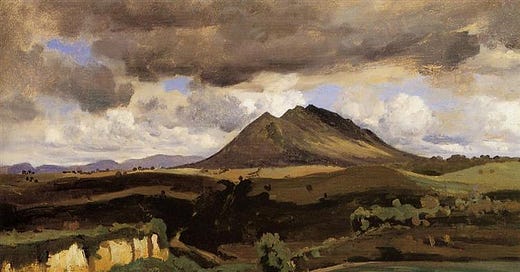This translation was originally published in Literary Imagination, and appears in my Penguin Book of Greek and Latin Lyric Verse.
Vides ut alta stet nive candidum
Soracte nec iam sustineant onus
silvae laborantes geluque
flumina constiterint acuto?Dissolve frigus ligna super foco 5
large reponens atque benignius
deprome quadrimum Sabina,
o Thaliarche, merum diota.Permitte divis cetera, qui simul
strauere ventos aequore fervido 10
deproeliantis, nec cupressi
nec veteres agitantur orni.Quid sit futurum cras, fuge quaerere,
et quem fors dierum cumque dabit, lucro
adpone nec dulcis amores
sperne, puer, neque tu choreas, 15donec virenti canities abest morosa.
Nunc et Campus et areae
lenesque sub noctem susurri
composita repetantur hora,nunc et latentis proditor intumo 20
gratus puellae risus ab angulo
pignusque dereptum lacertis
aut digito male pertinaci.
See how Soracte, buried in snowdrifts, gleams
so white, its treetops straining to bear the load
of winter, as the icy streams
stand choked in the beds where they once flowed.
Heap the hearth up with firewood to thaw the freeze,
good Thaliarchus, and liberally let me quaff
the house Sabine we’ve aged – more, please –
for four years now, from its Greek carafe.
Leave the rest to the gods, who can in a flash
becalm the storm-blasts fighting the churning seas, 10
so no breeze stirs the ancient ash,
and the winds are still in the cypress trees.
Don’t ask about tomorrow – run from the news!
Whatever time you get from the hand of chance
is profit. You’re young; don’t refuse
the sweetness of love, don’t refuse to dance
now, while your green springtime has no hint of white
old age or death. Now make for the public squares,
and for soft whispers in the night
at the hour appointed for hushed affairs; 20
make for the laughter, traitor of hidden charm,
caught from the corner where she plays hide-and-seek,
or the love-pledge wrenched from her arm,
or from her finger, willfully weak.



